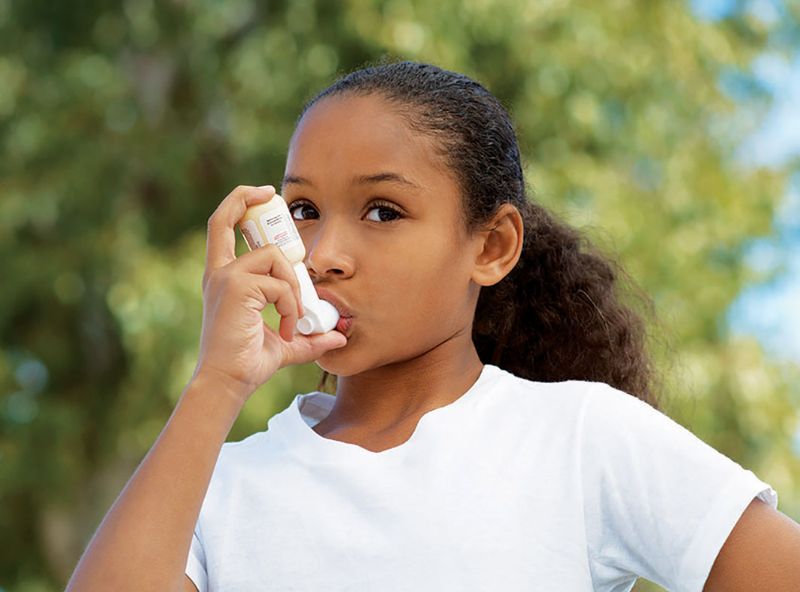- Home
- News, Articles & Reviews
- All Health & Beauty
- Looking Good, Feeling Great
- Medical Health
- Mirror Mirror on the Wall
- Style & Fashion
- General
- Vintage & Sustainable Fashion
We are hiring! Please click here to join our growing magazine delivery team in Gloucestershire!
Areas
Health & Beauty
Archive

Lungs and breathing
All Areas > Health & Beauty > Medical Health
Author: Holly Prince, Posted: Thursday, 24th November 2016, 08:00
On average, each of us takes about 19-20,000 breaths per day. Breathing (respiration) is extremely important for the whole body, as without oxygen we will eventually die. Breathing is an unconscious reflex, meaning the body regulates it without us having to think about it.
When we breathe, the diaphragm and muscles between the ribs move, which ‘pumps’ the lungs. When we inhale, the lungs expand, drawing in oxygen, and when we exhale the lungs contract and carbon dioxide is released via our nose or mouth.
When the air enters the lungs, it passes through tiny air sacs called alveoli and into the capillaries where it can be transported around the body in the bloodstream via the red blood cells.
Our physical posture and emotions affect our breath
The rate and depth of our breath can be affected by our physical posture and our emotions. For example, being hunched over a desk can cause us to breathe more shallowly, which leads to more carbon dioxide in our blood. This can cause us to feel tired, and we may start to yawn to get more oxygen into our system.
Abdominal breathing is much better for us, as it gets a decent amount of oxygen into the body, providing us with more energy. This is also why stretching and taking a short walk is beneficial, as it opens up the chest and gets our lungs working more effectively.
Deep breathing also helps us to feel more relaxed. When we feel anxious, our breathing becomes quicker and shallower, so taking a few deep breaths can help to calm us down.
Even when we do breathe from our abdomen, at a maximum, the majority of us only use 70% of our lung capacity.
There are many factors that can affect the way we breathe – lifestyle factors including smoking and being over-weight, short-term health problems like having flu or allergies, and more serious, longer-term illnesses such as asthma or bronchitis.
Dust and pollen can cause allergies
Allergies occur when the body’s immune system overreacts to small particles such as dust, pollen or mould spores. This leads to reactions like coughing, sneezing and a blocked or runny nose.
Asthma is a condition in which the air passages to the lungs become inflamed or partially blocked with mucus, making them narrower and so decreasing the amount of air we can take in. This causes breathlessness, wheezing, and a tight feeling across the chest. It is not really understood why some people develop asthma and others do not.
Infections cause inflammation of the air sacs
Bronchitis is an illness caused by an infection that irritates the air passages to the lungs and causes them to become swollen. This leads us to cough as we try to shift and expel the built-up mucus.
Pneumonia is similar, as it is also caused by infection that inflames the air sacs in the lungs. This causes problems for the respiratory system, and additional symptoms include fever, a fast heartbeat, and loss of appetite.Other Images
Copyright © 2024 The Local Answer Limited.
Unauthorized use and/or duplication of this material without express and written permission from this site's author and/or owner is strictly prohibited. Excerpts and links may be used, provided that full and clear credit is given to The Local Answer Limited and thelocalanswer.co.uk with appropriate and specific direction to the original content.More articles you may be interested in...


© 2024 The Local Answer Limited - Registered in England and Wales - Company No. 06929408
Unit H, Churchill Industrial Estate, Churchill Road, Leckhampton, Cheltenham, GL53 7EG - VAT Registration No. 975613000You are leaving the TLA website...
You are now leaving the TLA website and are going to a website that is not operated by us. The Local Answer are not responsible for the content or availability of linked sites, and cannot accept liability if the linked site has been compromised and contains unsuitable images or other content. If you wish to proceed, please click the "Continue" button below:




